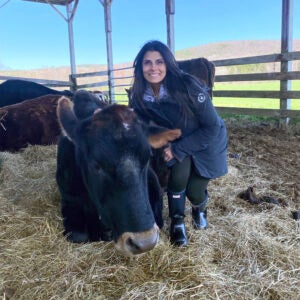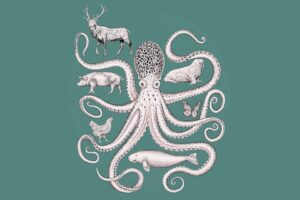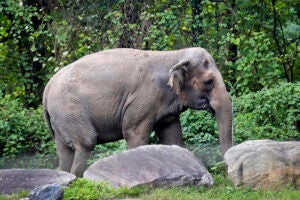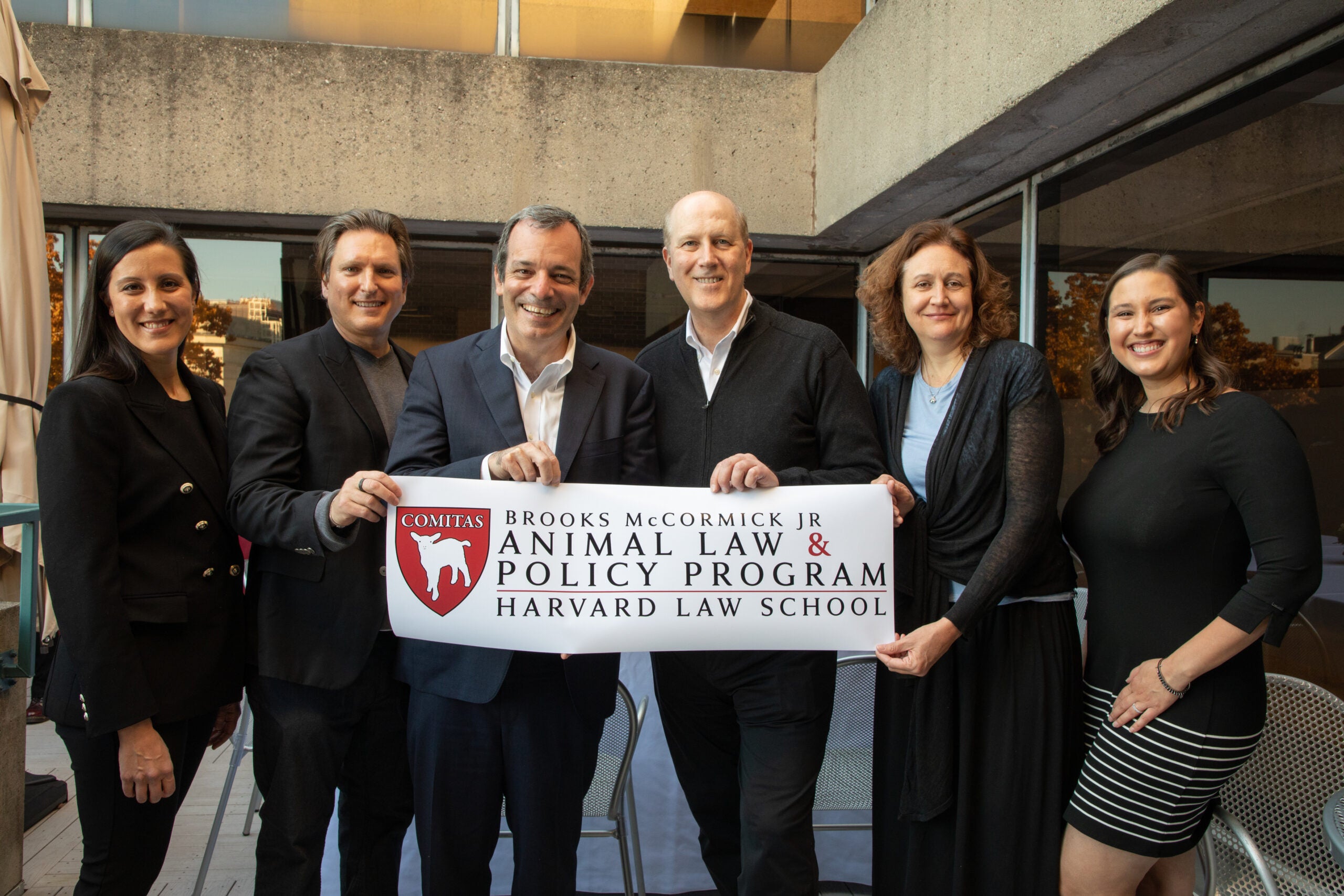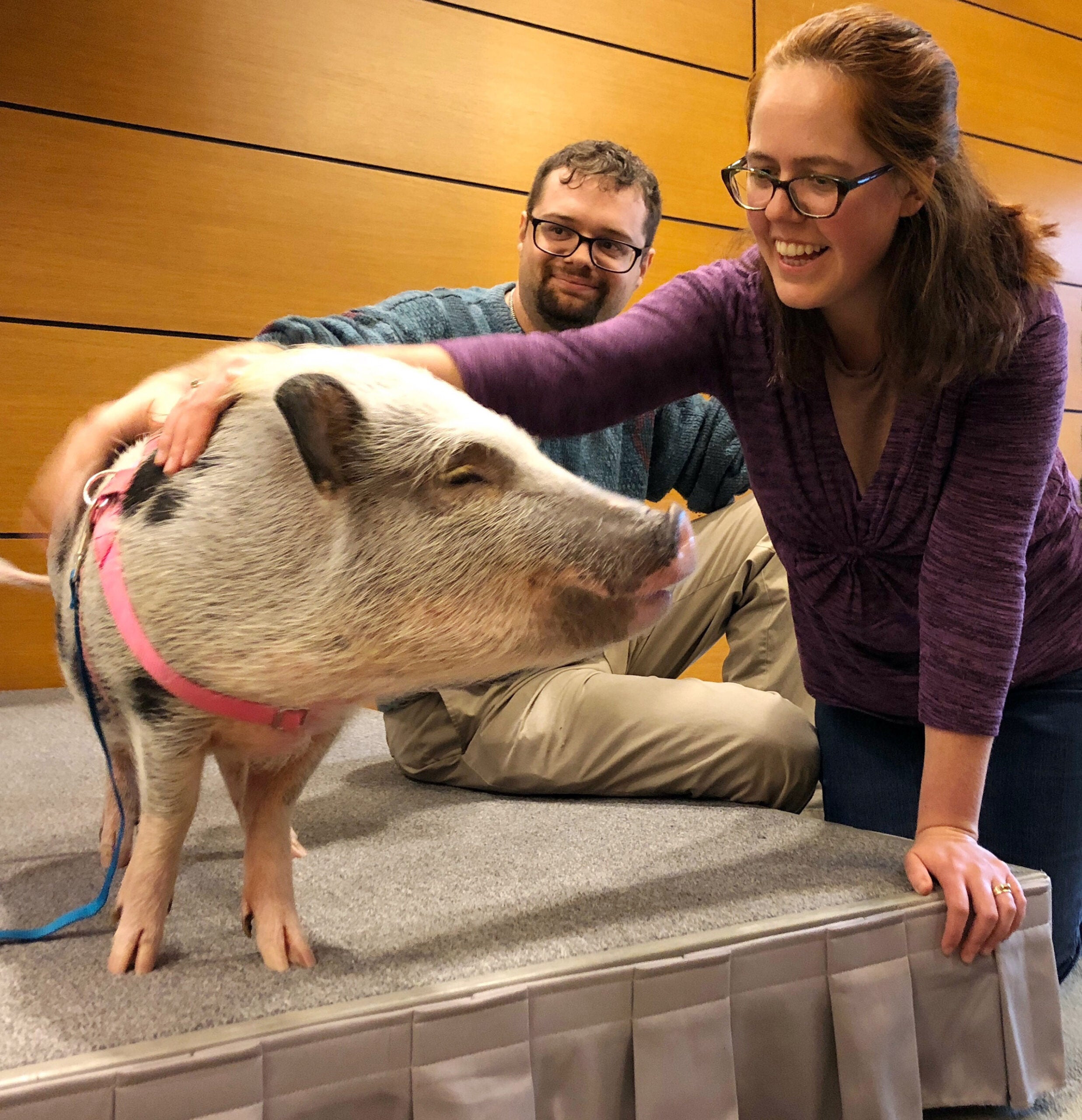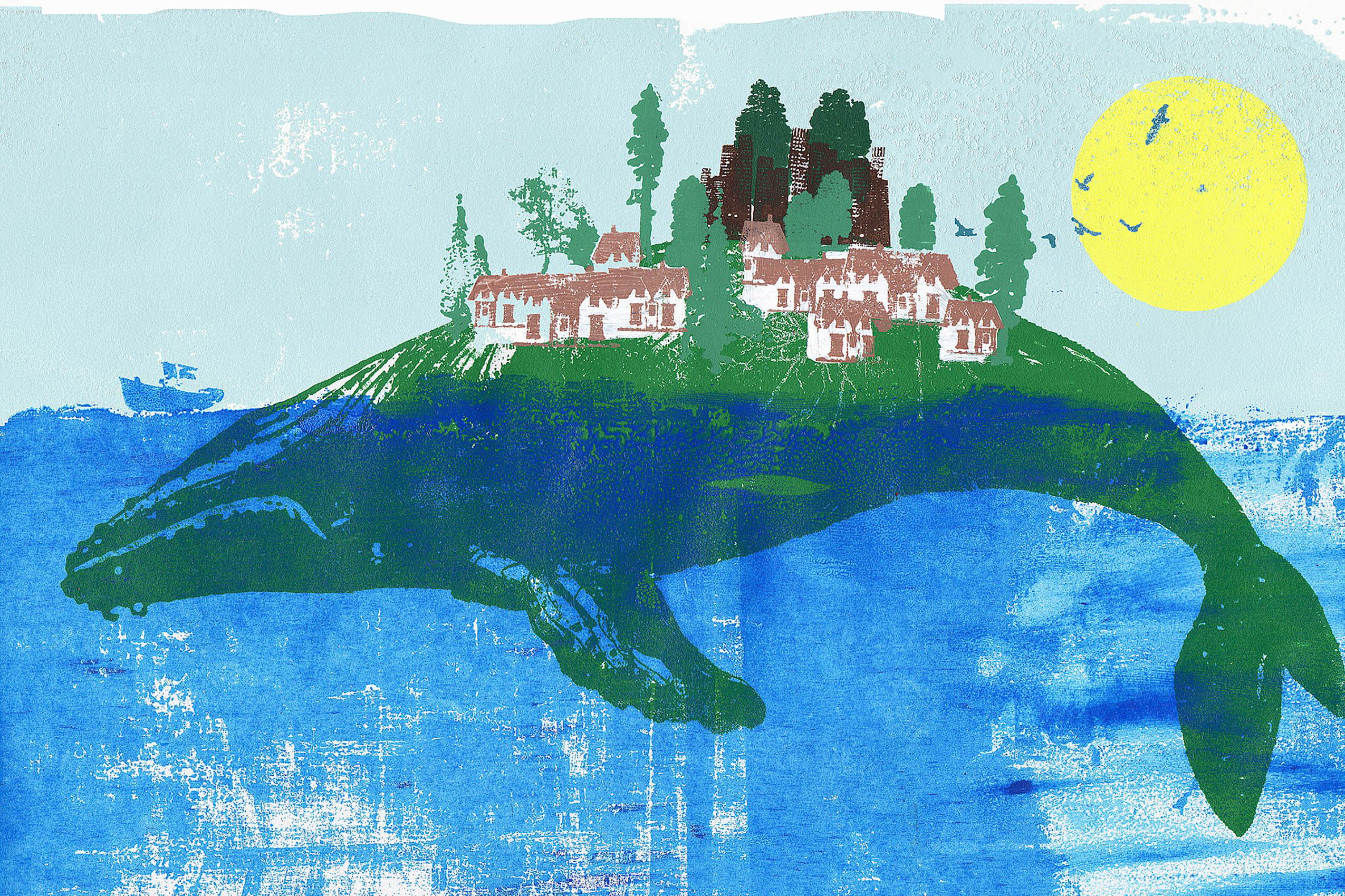People
Kristen Stilt
-
The Brooks McCormick Jr. Animal Law & Policy Program (ALPP) at Harvard Law School has announced Nirva Kapasi Patel as its new executive director.
-
Weston Resident Will Lead Harvard’s Animal Law, Policy Program
September 8, 2023
The Brooks McCormick Jr. Animal Law & Policy Program (ALPP) at Harvard Law School today announced Nirva Kapasi Patel as its new Executive Director. Nirva…
-
Salma Waheedi named inaugural executive director of Harvard Law School’s Program on Law and Society in the Muslim World
June 20, 2023
Salma Waheedi, a lecturer on law and associate director of Harvard Law School’s Program on Law and Society in the Muslim World, has been named its executive director.
-
All Creatures Great and Small
February 14, 2023
The HLS animal law program is trying to prove that better animal welfare is good for everyone
-
Professor Kristen Stilt, faculty director of the Animal Law & Policy Program, weighs in on the campaign by one animal rights organization to release Happy the elephant from the Bronx Zoo.
-
Wild animals possess distinct legal rights, including to exist, to develop their innate instincts and to be free from disproportionate cruelty, fear and distress, Ecuador’s top court ruled in a landmark decision interpreting the country’s “rights of nature” constitutional laws. ... “What makes this decision so important is that now the rights of nature can be used to benefit small groups or individual animals,” Kristen A. Stilt, a Harvard law professor and Faculty Director of the school’s Brooks McCormick Jr. Animal Law and Policy Program, said. “That makes rights of nature a far more powerful tool than perhaps we have seen before.”
-
Faith in the Law
January 31, 2022
Four distinct programs pursue research and address current topics linked to the intersection of religion and law
-
$10 million endowment established for the Harvard Law School Animal Law & Policy Program
November 10, 2021
Harvard Law School today announced the establishment of a $10 million endowment for the Animal Law & Policy Program, thanks to a gift from the Brooks Institute for Animal Rights Law and Policy.
-
So why did you love ‘My Octopus Teacher’?
May 20, 2021
It was such an unlikely hit. A quiet nature documentary shot by naturalist and filmmaker Craig Foster in his backyard — a lush kelp forest in False Bay, South Africa, teeming with marine life — and depicting his yearlong encounter with a cephalopod. The 2020 Netflix release “My Octopus Teacher” became a viral sensation, a critical darling, and an Oscar winner...That persistence and his ability to track and follow an animal in the wild, particularly in a marine environment, struck neuroscientist David Edelman, a visiting scholar at Dartmouth who is researching visual perception, cognition, and their neural bases in the octopus. Edelman offered his comments during a wide-ranging discussion about the film on Monday, sponsored by Harvard’s Mind Brain Behavior Interfaculty Initiative and moderated by Harvard Law School Professor Kristen Stilt, who also directs the School’s Animal Law and Policy Program...Stilt is working with the Animal Law and Policy Clinic to get octopuses protected under the Animal Welfare Act, which regulates the treatment of animals in research.
-
One of two livestock ships at sea since mid-December with thousands of cattle on board is now at the Spanish port of Cartagena, but the fate of its cargo is unclear. The two vessels left from different ports in Spain before Christmas to deliver their cargoes of animals, but were each refused entry by various countriesincluding Turkey and Libya, owing to suspected outbreaks onboard both ships of the bovine disease bluetongue. Spain’s government and the country’s largest association of beef producers, Asoprovac, have both said the cattle came from areas free of bluetongue. On Tuesday, the Spanish news agency EFE reported that although Turkeyhad originally agreed to take the cattle, satisfied they were bluetongue free, the animals were rejected on arrival because of disease fears...Prof Kristen Stilt, director of Harvard’s Animal Law and Policy Program, who is writing a book about the transport of live animals, said it was an inherent risk with live transport that the animals would be rejected at their destination port. Once labelled as rejected, Stilt said it was “very likely that no other country [would] accept them, as we are now seeing with the two vessels at sea with calves from Spain”. Another problem for crew and livestock, she said, was the absence of an international arbiter that could assess claims of disease and make a binding determination. The result, she said, was “usually catastrophic in terms of loss of animal lives”.
-
Ships carrying live animals are at least twice as likely to suffer a “total loss” from sinking or grounding as standard cargo vessels, the Guardian has found. In the past year alone there have been two disasters involving animals in transit. Last November, at least 14,000 sheep drowned after the Queen Hindcapsized en route to Saudi Arabia from Romania. And last month, Gulf Livestock 1, a carrier transporting almost 6,000 cattle, sank off the Japanese coast en route to China from New Zealand. Forty crew members remain missing and are presumed dead. “With the Guardian’s shocking findings … [it’s] time for an open and honest assessment of an industry that has caused one crisis after another,” said Prof Kristen Stilt, director of Harvard’s Animal Law and Policy Program, currently writing a book about the transport of live animals. “That assessment should recognise that the transport of chilled and frozen meat is the way that nearly all meat travels in commerce today. The idea of sending live animals is a holdover from a bygone era.” The global live export trade is worth nearly £16bn. For decades, campaigners have been calling on the EU to provide better protections for animals in transit, and an inquiry into the regulatory system is under way. According to Guardian analysis, between January 2010 and December 2019 five livestock vessels were recorded as lost to sinking or irrevocable grounding, killing crew and animals. The total equates to just over 3% of the estimated 150 livestock carriers above 100 gross tonnes (GT) known to operate worldwide. The 100 GT measurement is used by the shipping industry to separate smaller vessels, often owned for pleasure, from larger, more probably commercial, ones.
-
A 33-year-old orangutan awarded “non-human” personhood rights in a landmark 2015 court decision in Argentina has settled into a new home in Florida...Sandra landed at the center this month because she’s a hybrid of two orangutan subspecies, and Indonesia, one of the native environments for orangutans — where most preferred sanctuaries are located — has banned orangutans like her from its sanctuaries. As part of implementing Sandra's new rights, the Argentinian judge wanted her to live at an accredited facility — and the Florida center was the only one in the Americas that met those standards. Her arrival has raised the hopes of US activists who are trying to match the successes of lawyers who turn to the courts to fight for animal rights around the world...“You almost get a sense that judges are really looking for reasons not to do what he's asking,” said Kristen Stilt, director of the animal law and policy clinic at Harvard Law School. “One of the reasons is they're just being transferred to another form of captivity. They're not being freely released.”
-
JET-Powered Learning
August 21, 2019
1L January Experiential Term courses focus on skills-building, collaboration and self-reflection
-
Animal Law and Policy Clinic launches at Harvard Law School
August 5, 2019
Harvard Law School today announced the launch of the new Animal Law & Policy Clinic...The clinic will be part of the Animal Law & Policy Program, led by Faculty Director Professor Kristen Stilt. Announcing the clinic, Stilt said: “The Animal Law & Policy Clinic at HLS will train and prepare our graduates to embark on careers in the animal protection field, produce impactful litigation and policy analysis to benefit the animal protection movement, and provide an internationally renowned platform for educating the broader public about the many pressing issues involving animal law and policy.” The clinic will be led by Visiting Assistant Clinical Professor Katherine Meyer and Clinical Instructor Nicole Negowetti. Recent HLS graduate Kate Barnekow ’19 will be returning to serve as the first Clinical Fellow, and Sarah Pickering will be joining the team as Communications Manager for both the clinic and the program...“Animal law is a vitally important and rapidly growing field,” said Harvard Law School Dean John F. Manning ’85. “Our new Animal Law & Policy Clinic will give students real-world experience in this burgeoning field, build on Harvard Law School’s long tradition of innovative pedagogy, and prepare future graduates to address significant societal challenges. I am delighted to welcome Katherine Meyer to the Harvard Law School community and congratulate her, Kristen Stilt, and Nicole Negowetti on the launch of this terrific initiative.”
-
Animal Law and Policy Clinic launches at Harvard Law School
August 5, 2019
Harvard Law School has announced the launch of the new Animal Law and Policy Clinic, to be led by Visiting Assistant Clinical Professor Katherine Meyer and Clinical Instructor Nicole Negowetti.
-
Gradually, nervously, courts are granting rights to animals
December 19, 2018
Over the past few decades, the science of animal cognition has changed people’s understanding of other species. In several, researchers have discovered emotions, intelligence and behaviour once thought to belong exclusively to humans. But the law has changed slowly, and in one respect barely at all. Most legal systems treat the subjects of law as either people or property. There is no third category. ... The upshot is that “the law is a patchwork,” says Kristen Stilt, who teaches animal law at Harvard Law School. Animals still lack rights, but the bright line separating them from people has been dulled by sentience laws and rulings in India, Argentina and Colombia.
-
Raising the profile of animal law to match the stakes
December 13, 2018
According to Harvard Law School lecturer Jonathan Lovvorn, saving the planet and its inhabitants from climate catastrophe begins with the world’s most vulnerable population: animals.
-
Raising the profile of animal law to match the stakes
November 5, 2018
According to Harvard Law School lecturer Jonathan Lovvorn, saving the planet and its inhabitants from climate catastrophe begins with the world’s most vulnerable population: animals...“What we are trying to do with the program is multifold,” said [Kristen] Stilt, an expert in Islamic law and society who is writing a book on animal welfare and the halal industry. “We want to encourage and facilitate excellent academic writing and research in animal law, we want to train young lawyers passionate about the topic, and we want to engage with the broader community about these issues. We believe that ideas matter, and that ideas can spark change.”...One of his current students, Kate Barnekow, arrived at the Law School planning to focus on gender and sexual violence, until a student group introduced her to the animal law program and “the opportunities available through the law to help animals.” “I see my interest in animal law as a continuation of my interest in a spectrum of marginalized voices whose interests are not always represented in the legal world, which includes women and survivors and people with nonbinary identities,” said Barnekow, who plans to work in animal law after she graduates in May. “I came to Harvard to raise up those voices.”

